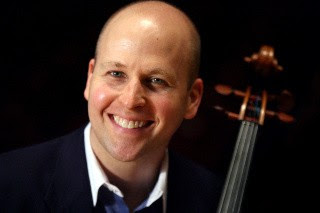By Greg Stepanich
Editor’s note: Here are brief reviews from local concerts in the past weeks.
Amernet Quartet
(Oct. 24, Josephine Leiser Center, Fort Lauderdale)
The Russian composer Sergei Taneyev has been largely overlooked in the United States, but he had much to offer, and in the first concert of the Chameleon Musicians chamber music series, listeners had a rare chance to hear what he was all about.
The Amernet Quartet, with its new cellist Jason Calloway, was joined by Chameleon founder Iris van Eck, also a cellist, for Taneyev’s String Quintet No. 1 (in G, Op. 14), which might very well have been the first time this work has ever been played in a South Florida concert. It’s a strong, imaginative, subtle work; probably too subtle to be widely popular, like the music of his pupil Nikolai Medtner. It’s difficult, too, with a wide-ranging theme-and-variations finale that shows off Taneyev’s contrapuntal prowess.
The five musicians played this 1901 quintet quite capably, though it may have been a couple rehearsals away from total mastery. The group made much of Taneyev’s exploitation of the rich sound afforded by the two celli, particularly at the bottom, and that gave the performance a pleasing warmth.
The second half of the concert was devoted to the most famous of all two-cello string quintets, the Quintet in C, D. 956, of Franz Schubert. This was a lovely rendition of this masterwork, with the slow movement offering just the right amount of rapt tension to make it moving.
Lynn Philharmonia
(Oct. 10, Wold Performing Arts Center, Boca Raton)
You have to give the Lynn Philharmonia credit for going big with the first concert of its season at its new hall: it’s not every conservatory orchestra that would attempt Mahler’s Fifth Symphony, a piece that taxes every ensemble that tries it.
But conductor Albert-George Schram and his student charges pulled it off, and pulled it off well. This was not a spotless performance; there were intonation problems in the brass, flubbed notes, and an occasional feeling that things were about to get away from everyone. Yet what this performance had was a rough-and-ready kind of energy, a liveliness and vigor that allowed listeners to hear the variety of Mahler’s writing in a way that sounded fresh.
This feeling of discovery rather than disquisition helped mitigate the length of the piece as well. The expanded string section had admirable unity and respectable chops, the trumpet soloist in the opening bars played well, and the lively acoustic in the new Wold Center brought out the harp part in the celebrated Adagietto with rare prominence. All in all, a decent reading of this remarkable symphony, despite its unpolished passages, and an impressive opening to the season.
The violinist Elmar Oliveira, a recent addition to the Lynn faculty, was the soloist in the first half of the program in the Mendelssohn Violin Concerto (in E minor, Op. 64). Oliveira, the only American violinist ever to win the gold at the Tchaikovsky Competition, has a huge, cutting sound, and he clearly knows every nook and cranny of this concerto. There were some less-than-precise sliding octaves at one point Sunday afternoon, but that was a minor blemish on an otherwise powerful and compelling reading of this thrice-familiar piece, especially in the intense way he played the main theme of the slow movement.
The audience adored this performance, leaping to its feet and demanding several curtain calls. The concert opened with a very uneven Feierlicher Einzug, a celebration piece for brass by Richard Strauss, in which the intonation started shakily and never was able to quite resolve itself by the end.
Robert deMaine
(Sept. 25, Florida Atlantic University, Boca Raton)
Robert deMaine, whose complete traversal of the Beethoven cello sonatas over two nights was one of last season’s most memorable events, returned to Boca Raton for a season-opening recital that made concertgoers regret that Ralph Vaughan Williams never wrote a cello sonata or concerto.
Joined again by FAU’s Heather Coltman, his piano partner for the Beethoven series, deMaine played the English master’s Six Studies in English Folksong midway through a recital of music by Bach, Mendelssohn and Franck. These short, gorgeous pieces distilled the heart of the Detroit Symphony principal cellist’s art: a beautiful singing tone, lapidary technical precision, and a persuasive identification with the idiom of the music at hand. This was a marvelous reading of this piece, in which every note had something lovely to say.
DeMaine was also compelling in the Mendelssohn Sonata No. 2 (in D, Op. 58), which had an appealing bigness and a strength of utterance that is too rarely given to Mendelssohn. He closed the recital with the Jules Delsart transcription of the Violin Sonata of Cesar Franck, music that transfers well to the cello.
Here, too, deMaine played with generosity and power, as did Coltman, and there were moments throughout when things were a bit too forceful. That may have been the result of a last-minute program switch from what had been a concert primarily of English music, and it’s to be hoped that deMaine will visit us again with the Bridge and Delius works he had originally planned to offer.


